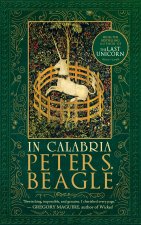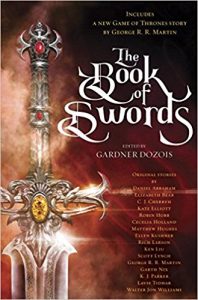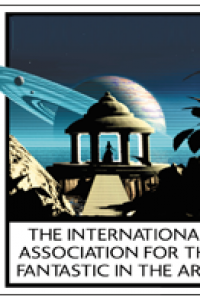SF Short Fiction, 2017 by Rich Horton
 How to view the state of the field now? SF (and fantasy) are in some sort of pop culture ascendance – the rapturous reception of The Last Jedi on the one hand, and Wonder Woman on another hand, and even The Shape of Water (a more ambitious film than the more popular pair I mentioned, and yet also an hommage of sorts to 1950s monster movies) is surely evidence of this. And yet that’s old news: of course, enjoyable as those films are, they’re “Old SF” too.
How to view the state of the field now? SF (and fantasy) are in some sort of pop culture ascendance – the rapturous reception of The Last Jedi on the one hand, and Wonder Woman on another hand, and even The Shape of Water (a more ambitious film than the more popular pair I mentioned, and yet also an hommage of sorts to 1950s monster movies) is surely evidence of this. And yet that’s old news: of course, enjoyable as those films are, they’re “Old SF” too.
The relative acceptance of fantastika in literary circles is old school too, with such 2016 books as Colson Whitehead’s Underground Railroad continuing the story, and with the successful television adaptation of a much older literary SF novel, Margaret Atwood’s The Handmaid’s Tale, reminding us that this too is to an extent old news (and that media adaptations swamp novels in popularity anyway). One of my favorite 2017 novels, Daryl Gregory’s Spoonbenders, is by a long time in-genre writer, yet it sold to legendary literary house Knopf, and was marketed to the general audience: in some ways the long-desired (by some folks) merger of the SF world with the mainstream is upon us.
But short fiction remains in many ways – as ever, I think – ahead of the curve, more experimental (at the edges, anyway), less likely to achieve wide notice. (But is it? Surely a goal of John Joseph Adams’s Best American SF series is to bring short SF from both within and without the genre to wider cultural notice? And every year I find excellent short fantastika outside our circle of magazines, webzines, and anthologies, such as Daniel Wallace’s powerful mermaid story “Sea Girls”, from Tin House.)
But still, the core option for interesting short SF and Fantasy is in familiar places: online magazines such as Clarkesworld, Lightspeed, Uncanny, and Beneath Ceaseless Skies, print magazines such as Asimov’s, Analog, F&SF, and Interzone, and original anthologies. Last year the Hugo nominations notably ignored the print magazines: all the novelettes and short stories came from online sources, while the novellas were dominated by Tor.com’s line of slim books. I think the primary reason for this (in the cases of novelettes and short stories anyway) is price and ready availability. (And “ready availability” applies to the Tor.com books as well: they are much easier to acquire when someone recommends them a few months after publication.) I’m not sure this is a solvable problem, if problem it is, but I’d like to emphasize that while I think it’s fair to say that online magazines have reached parity of quality with the print magazines, they are not noticeably superior (within the bounds of variation of taste).
 So what were my favorite stories this year? I figured I’d organize this by the publication categories I’ve suggested above. I’ll start with what I’ll call “novella chapbooks” (though the term “chapbook” is a bit imprecise). Tor.com Books have really published a great many of these in the past few years, a very welcome development, as I’ve always liked novellas, and I think that length a good one for SF. They are not the only source for individually published novellas, however – I saw strong work this year from NewCon, Tachyon, Subterranean, and Aqueduct as well. So, from Tor.com I particularly liked Dave Hutchinson’s Acadie, about virtual worlds and genetic enhancement; from Aqueduct I thought two very different novellas quite good: Karen Heuler’s In Search of Lost Time (about a woman who can steal your time) and Cynthia Ward’s The Adventure of the Incognita Countess (a twisty spy story/vampire mashup). Subterranean features another of K.J. Parker’s absorbing cynical dark pieces, Mightier Than the Sword. Tachyon issued Peter Beagle’s sweet In Calabria, about unicorns in mid-century Italy. And from NewCon Press, Jaime Fenn’s sharp caper story The Martian Job is well worth your time.
So what were my favorite stories this year? I figured I’d organize this by the publication categories I’ve suggested above. I’ll start with what I’ll call “novella chapbooks” (though the term “chapbook” is a bit imprecise). Tor.com Books have really published a great many of these in the past few years, a very welcome development, as I’ve always liked novellas, and I think that length a good one for SF. They are not the only source for individually published novellas, however – I saw strong work this year from NewCon, Tachyon, Subterranean, and Aqueduct as well. So, from Tor.com I particularly liked Dave Hutchinson’s Acadie, about virtual worlds and genetic enhancement; from Aqueduct I thought two very different novellas quite good: Karen Heuler’s In Search of Lost Time (about a woman who can steal your time) and Cynthia Ward’s The Adventure of the Incognita Countess (a twisty spy story/vampire mashup). Subterranean features another of K.J. Parker’s absorbing cynical dark pieces, Mightier Than the Sword. Tachyon issued Peter Beagle’s sweet In Calabria, about unicorns in mid-century Italy. And from NewCon Press, Jaime Fenn’s sharp caper story The Martian Job is well worth your time.
What about the online sources? I mentioned four first rate magazines, but of course there are many more. I saw really strong work from the venerable Strange Horizons as well, and I should also mention Lackington’s, The Fantasist, Mothership Zeta, Kaleidotrope, and Apex, while acknowledging that that just scratches the surface.
Uncanny had a very good year, with one outstanding novella, Sarah Pinsker’s story of one person’s multiple parallel world instances, “And Then There Were (N-One)”, and such excellent shorter pieces as Vina Jie-Min Prasad’s “Fandom for Robots” and C. S. E. Cooney’s “Though She Be But Little”. Clarkesworld’s 2017 wasn’t as spectacular as some previous years, but I was quite taken by Robert Reed’s “The Significance of Significance” and Suzanne Palmer’s “The Secret Life of Bots”, along with another Prasad story, “A Series of Steaks”, and Nina Allan’s intriguing post-apocalyptic novelette “Neptune’s Trident”. From Lightspeed I was really impressed by a story from Italy, Giovanni Feo’s “Ugo”; as well as Matthew Kressel’s “Love Engine Optimization” (one of several stories to take a dark look at tech-enhanced future dating) and Bruce McAllister’s dark “This Is For You”, as well as strong work from Kelly Barnhill, Greg Kurzawa, Scott Dalrymple, Jeremiah Tolbert, and Susan Palwick, among others. Beneath Ceaseless Skies featured a striking atmospheric fantasy by Ryan Row (“Whenever Knight Comes”), and Kate Marshall’s lovely “Red Bark and Ambergris”, with other good stuff from Grace Seybold, Richard Parks, A. T. Greenblatt, and more.
Of course Tor.com’s true online component continues to publish a great many really good stories: this year I particularly liked Yoon Ha Lee’s “Extracurricular Activities”, Linda Nagata’s “The Martian Obelisk”, and Hanus Seiner’s “Hexagrammaton”, but also stories from Max Gladstone, Greg Egan, Theodora Goss, and E. Lily Yu.
I should also mention Jamie Wahl’s “Utopia, LOL?” from Strange Horizons; “Lamplighter’s Eve” by Kate Dollarhyde (Lackington’s); “Suradanna and the Sea”, by Rebecca Fraimow, from the novella-friendly Fantasist; Octavia Cade’s “The Ouroboros Café” from Kaleidotrope; and Madeline Ray’s “Montreal 2014”, from the alas now suspended Mothership Zeta.
In talking of online sources, I should also point to places like Patreon, where individual creators sell their stories directly: I particularly liked Tobias S. Buckell’s “Shoggoths in Traffic” and Kameron Hurley’s “The Fisherman and the Pig”. Similarly, Silvia Moreno-Garcia’s exceptional Martian/Mexican novella Prime Meridian resulted from a successful Indiegogo campaign (and is available now online to backers, and for sale in print next year).
The print magazines, as I noted, remain excellent. This year saw the first issue of the resurrected Omni, which included a really strong parallel worlds story by Maureen McHugh, “Sidewalks”. Interzone had fine work from Andy Dudak, Tim Akers, and Sean McMullen. I really like S.L. Huang’s “Time Travel is Only for the Poor” as well as Lettie Prell’s short-short “Emergency Protocol” in Analog, along with stories by Alec Nevala-Lee, Kenneth Schneyer, Maggie Clark, Michael F. Flynn, and more. Asimov’s featured Ray Nayler’s “Winter Timeshare”, Karen Joy Fowler’s “Persephone of the Crows”, Will McIntosh’s “Soulmates, Inc.”, a couple first rate stories from Rich Larson (“Cupido” and “An Evening with Severyn Grimes”), Damien Broderick’s wild novella “Tao Zero”, and a host of further fine stories by such as Sarah Pinsker, R. Garcia y Robertson, and Alexander Jablokov, among others. F&SF‘s standouts included a bunch of strong pieces from very new writers like R.S. Benedict, Auston Habershaw, J.R. Dawson, and G.V. Anderson, plus exceptional work from veterans like Samuel R. Delany (“The Hermit of Houston”), Michael Swanwick (“Starlight Express”), and Nina Kiriki Hoffman (“Rings”). (Again, I’m leaving out many.) I should add a final special issue from Fantastic, People of Color Take Over Fantastic Stories, with, in particular, Minsoo Kang’s delightful “The Sacrifice of the Hanged Monkey”.
Among the best original anthologies this year were Jonathan Strahan’s Infinity Wars (which included good work, such as Peter Watts’ “ZeroS” and Dominica Phetteplace’s “Oracle”) and Gardner Dozois’s The Book of Swords (Lavie Tidhar’s “Waterfalling”, Daniel Abraham’s “The Mocking Tower”, and more). I was also impressed by Cosmic Powers, edited by John Joseph Adams, which had very fine work from Tobias S. Buckell and Charlie Jane Anders, among others; and by Nick Gevers’ Extrasolar, which included a really strong novella by Kathleen Ann Goonan, “The Tale of the Alcubierre Horse”. I should also mention Bryan Thomas Schmidt’s Infinite Stars; The Djinn Falls in Love, edited by Mahvesh Murad & Jared Shurin; and Chasing Shadows, edited by David Brin & Stephen Potts. A project from Arizona State University’s Center for Science and the Imagination, under the lead of Ed Finn & Joey Eschrich (with editorial help from Juliet Ulman & Michael Bennett) has produced some interesting near future stories in a couple of anthologies (available free in electronic form), as well as a good story by Emily St. John Mandel in Slate, “Mr. Thursday”.
I’ve already touched on the short fiction we can find in more mainstream publications, such as Daniel Wallace’s “Sea Girls” in the always fantastika-friendly Tin House. I also saw exceptional work in McSweeney’s (Alice Sola Kim’s “One Day, Every Seven Years”), the Boston Review (Charlie Jane Anders’ “Don’t Press Charges and I Won’t Sue”), and the New Yorker (John Lanchester’s “Signal”). I’d be remiss not to mention a short story collection that got wide notice, and that included some very fine fantasy and even a striking SF story, What It Means When a Man Falls from the Sky, by Lesley Nneka Arimah.
Rich Horton works for a major aerospace company in St. Louis MO. He has published over a dozen anthologies, including the yearly series The Year’s Best Science Fiction and Fantasy from Prime Books, and he is the Reprint Editor for Lightspeed Magazine. He contributes articles and reviews on SF and SF history to numerous publications.
This review and more like it in the February 2018 issue of Locus.
 While you are here, please take a moment to support Locus with a one-time or recurring donation. We rely on reader donations to keep the magazine and site going, and would like to keep the site paywall free, but WE NEED YOUR FINANCIAL SUPPORT to continue quality coverage of the science fiction and fantasy field.
While you are here, please take a moment to support Locus with a one-time or recurring donation. We rely on reader donations to keep the magazine and site going, and would like to keep the site paywall free, but WE NEED YOUR FINANCIAL SUPPORT to continue quality coverage of the science fiction and fantasy field.






